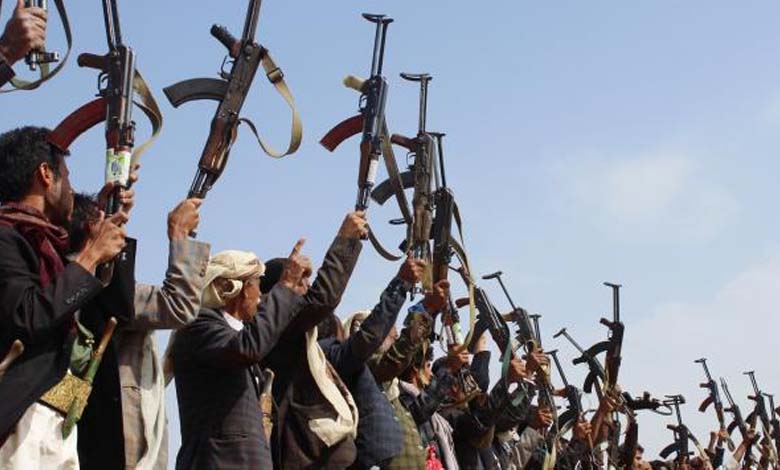The Houthis use the Hodeida port to smuggle weapons into Yemen

For years, the Iranian-backed Houthi militias, which control several areas in Yemen, have been using the port of Hodeida to pass weapons, equipment, and money, and to pressure the international community, under the guise of delivering humanitarian aid, to silence from the UN and rights groups.
The Hodeida port route, through which UN humanitarian organizations can transport humanitarian aid only, although it is under Houthi control, while other ports in the liberated areas of al Mukalla-Aden-Mocha have not been used, raising numerous questions about this and the continuation of that situation, raising suspicions of collusion with Houthi.
The Houthi militias use the port of Hodeidah for various military purposes, foremost among them receiving weapons, technical equipment, and foreign experts smuggled by their allies, foremost among them Iran, in addition to being used as a launching base for naval terrorist attacks against international navigation, according to many uncovered evidence, which is considered a threat to international navigation and to international peace and security, which requires a decisive international position.
Instead of being used to relieve millions of Yemenis from the world’s worst humanitarian disaster, in compliance with the Stockholm Agreement, militias redeployed to Hodeida, turning the port into a hub for weapons, boat-rigging, pirate operations and a constant threat to international shipping.
The Houthis are using the port as a cover for their military operations, by disrupting the passage of aid ships and triggering a humanitarian crisis to ensure the port remains under UN immunity under the Stockholm Agreement, so that aid deliveries via the port of Hodeida must stop to ensure that Houthi-supporting countries are not exploited by arms smuggling.
This exploitation of the port caused several crises, including the Houthis’ refusal to allow relief convoys and the denial of civilian access last year, when the Yemeni government demanded that relief supplies be diverted through the port of Aden and proposed that the United Nations take control of the port.
On Monday, the UN Security Council decided, under pressure from the UAE and support from Russia, to extend the arms embargo on Yemen to all Houthi rebels, after it was limited to specific individuals and companies. This means that the “entity” specified in its annexes, the Houthis, will be subject to procedures related to the arms embargo imposed on Yemen since 2015.
This focus on the Houthis is a precedent that is likely to cause the UN to lose its neutrality in the conflict, according to experts who also consider that all consequences of the resolution have yet to be explored.
For this reason, Major General Michael Burry, head of the UN Mission in Support of the Hodeida Agreement (UNMHA), ended his first week-long visit to the region to discuss efforts to intensify monitoring to ensure that Hodeida’s ports in western Yemen are free of weapons and unimpeded humanitarian access.
UNMHA reported that Burry had visited Saudi Arabia, the United Arab Emirates and the Hashemite Kingdom of Jordan to discuss ways to intensify the Mission’s monitoring efforts to ensure that Hodeida’s ports are free of weapons and unimpeded humanitarian access.
Burry reiterated the importance of preserving the civilian character of ports and preventing further escalation to protect the people of Hodeidah, and the need to preserve the city of Hodeida ports and intensify mine-clearance efforts in the vital Red Sea governorate in western Yemen.
Speaking to the Security Council, UN Special Envoy to Yemen Hans Grundberg confirmed that the use of the port of Hodeida for military purposes by the Houthis is being investigated after the Yemen Support Coalition presented evidence of the use of the ports of Hodeida and As-Salif by Houthi militias for military purposes.












